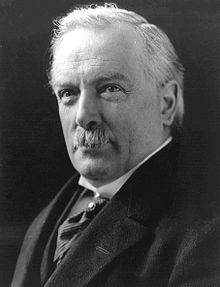
The Liberal welfare reforms (1906–1914) were a series of acts of social legislation passed by the Liberal Party after the 1906 general election. They represent the Liberal Party's transition rejecting the old laissez faire policies and enacting interventionist state policies against poverty and thus launching the modern welfare state in the United Kingdom.
Historian G. R. Searle argues that the reforms had multiple causes, including "the need to fend off the challenge of Labour; pure humanitarianism; the search for electoral popularity; considerations of National Efficiency; and a commitment to a modernised version of welfare capitalism." By implementing the reforms outside the English Poor Laws, the stigma attached to a needy person obtaining relief was also removed. After 1911 Liberals turned to other issues, but never abandoned their suport for the welfare programmes.[1]
During the 1906 general election campaign, neither of the two major parties made poverty an important election issue and no promises were made to introduce welfare reforms. The Liberals led first by Henry Campbell-Bannerman and later H. H. Asquith won a landslide victory and began introducing wide-ranging reforms as soon as they took office.[2]
- ^ G.R. Searle (2004). A New England?: Peace and War, 1886–1918. Clarendon Press. p. 369–375. ISBN 9780198207146.
- ^ Searle, pp. 358–365.
© MMXXIII Rich X Search. We shall prevail. All rights reserved. Rich X Search
